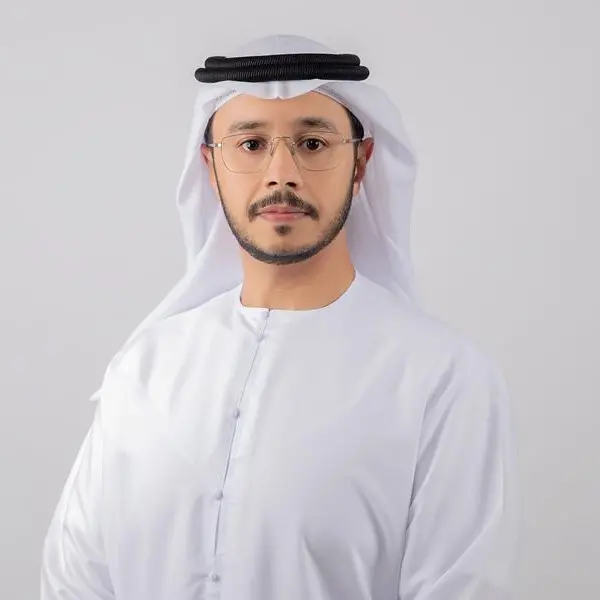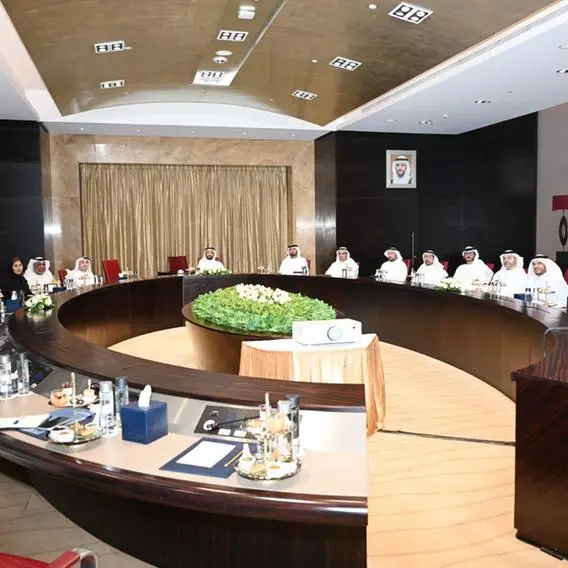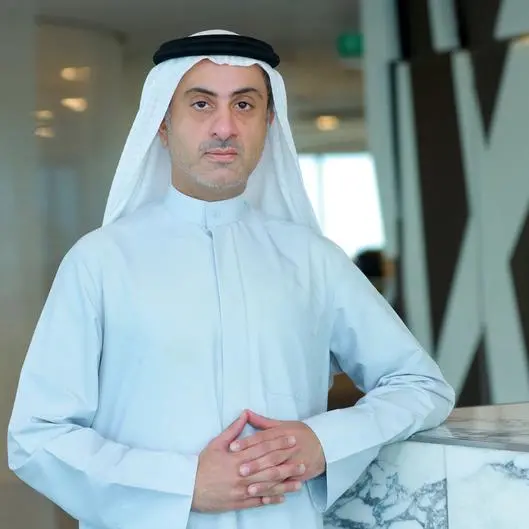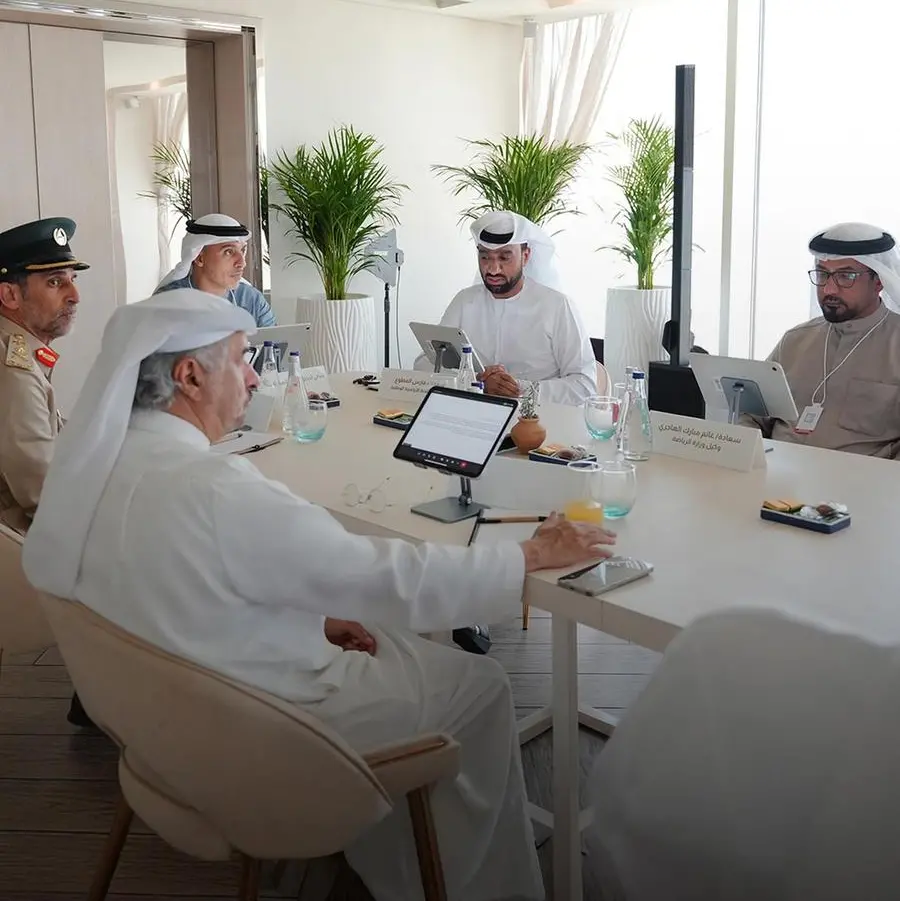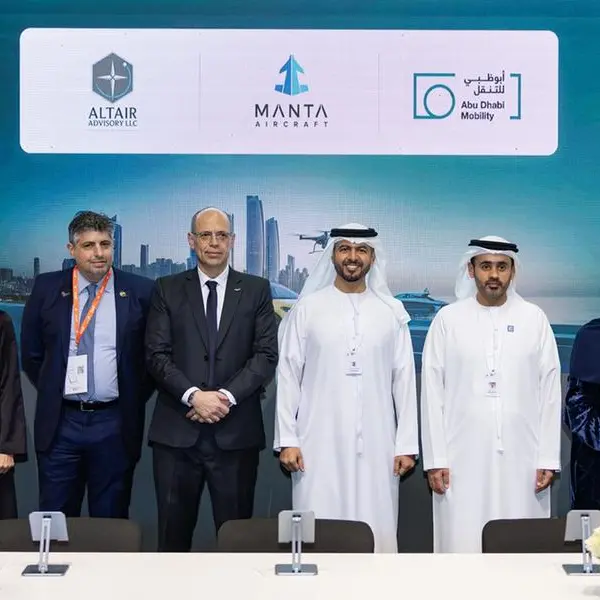PHOTO
Muscat, Oman: HE Saeed Mohammed Al Tayer, Chairman of the World Green Economy Organization (WGEO), highlighted the organization’s efforts to advance effective action and discussions on climate action in his speech at the opening session of the 34th meeting of the Council of Arab Ministers Responsible for the Environment (CAMRE), held at Al Bustan Palace, Ritz Carlton Hotel, Muscat, Sultanate of Oman.
Speakers in the session included HE Salim bin Nasser Al Aufi, Omani Minister of Energy and Minerals; HE Mariam bint Mohammed Almheiri, Minister of Climate Change and the Environment in the UAE; HE Engineer Abdulrahman bin Abdulmohsen Al-Fadhli , Minister of Environment, Water and Agriculture in the Kingdom of Saudi Arabia; HE Dr. Mohamed bin Mubarak Bin Daina, Minister of Oil and Environment and Special Envoy for Climate Affairs in the Kingdom of Bahrain; HE Dr. Muawiyah Khaled Al-Radaideh, Minister of Environment in Jordan, HE Nizar Amidi, Minister of Environment in Iraq; HE Adama Soko, Senior Liaison Officer, United Nations Convention to Combat Desertification ; HE Tarek Lahssisne, Ambassador of the Kingdom of Morocco to the Sultanate of Oman; HE Idris Ahmed Mia, Ambassador of the Syrian Arab Republic to the Sultanate of Oman; Dr. Mahmoud Fathallah, Director of Arab League's Department of Environmental Affairs and Meteorology ; Ayman Eltalouny, Head of Saudi Environment Sustainability Programm at the UN Environment Programme; Reem Nejdawi, Chief of Food and Environment Policy Section at the Economic and Social Commission for Western Asia (ESCWA); and William David Grassley, United Nations Resident Humanitarian Coordinator for Yemen.
Al Tayer talked about WGEO’s efforts to accelerate the implementation of the Nationally Determined Contributions (NDCs), Long-Term Low Emissions Development Strategies (LT-LEDS), and National Adaptation Plans (NAPs) to propel climate action and resilience against climate change impacts. He noted that 83 countries have joined the Global Alliance on Green Economy (GAGE), and the number is growing by each passing day, demonstrating commitment to securing a sustainable future for all.
Al Tayer said that WGEO is working to create a common platform for global collaboration between nations and societies to pave the way for sustainability. This platform serves as a catalyst for knowledge exchange and innovative solutions that transcend geographical boundaries. Through collective action, we exchange best practices, research outcomes, and the latest technologies driving the shift towards a green economy.
“I am pleased to be here today and would like to express my warmest greetings to each of you as the ministers responsible for environment in Arab countries. It is a privilege to be among distinguished personalities who are brainstorming together to address various challenges facing the Arab world today which include inter-alia climate change, food security, water scarcity, biodiversity and desertification. I would like to thank our host Sultanate of Oman and General-Secretary Office of Sates of Arab League for their invitation. This gives me an opportunity to share my thoughts on such crucial issues faced by mankind today,” said Al Tayer in his speech.
“As we convene here today for the 34th Meeting of the Council of Arab Ministers Responsible for The Environment (CAMRE) in Muscat, Sultanate of Oman, we draw closer to the twenty-eighth session of the Conference of the Parties to the United Nations Framework Convention on Climate Change (COP28). This session is set to take place in Expo City Dubai in November, hosted by the United Arab Emirates with the support and guidance of His Highness Sheikh Mohamed bin Zayed Al Nahyan, President of the UAE, and His Highness Sheikh Mohammed bin Rashid Al Maktoum, Vice President and Prime Minister of the UAE and Ruler of Dubai. The goal is to foster dedicated efforts that balance development and environmental sustainability for us and generations to come. This is a significant opportunity for dialogue and the exchange of ideas on crucial societal challenges, like food security and water scarcity. As Arab region has dearth of arable lands, there is ever increasing dependence on food imports with the growth of population. We need to chalk out a long-term plan to be self-reliant in food products and increase food security for our citizens and residents alike. As well known, water is one of the three primary needs of human beings, essential for survival preceded by air and succeeded by food. While some Arab countries are working very hard to get potable desalinated water from the seas around us, there is a crunch of water for many Arab countries. We need to increase collaboration and arrangements for transporting the water in hinterlands from the shores,” added Al Tayer.
“Wars, armed conflicts, and political instability in the region are among the most important reasons for the deterioration of biodiversity. This has also threatened the native flora and fauna and damaged the ecosystem. Desertification, land degradation and drought remain a significant threat to the Arab region. The alarming consequences of climate change have brought us to a crossroads where the preservation of our resources has become an imperative that cannot be ignored. Our objective today is to share experiences, highlight best practices, and explore opportunities that promote resource conservation, ensuring a sustainable future for us and the future generations. The environmental challenges facing our world today are unparalleled. The escalating carbon emissions causing global warming necessitate united efforts to chart a course of action that transcends all limitations and overcomes obstacles, aiming for a secure and sustainable future. In 2015, the global community united at the Paris Climate Conference, committed to combating climate change. However, a closer look at the future reveals the compounding nature of the catastrophe. Existing global economic policies and strategies are set to drive a temperature increase of 2.8 degrees Celsius by century's end. This compels us to intensify global efforts in fortifying the Nationally Determined Contributions (NDCs) pledged by Paris Climate Change Agreement member states. This commitment to reducing greenhouse gas emissions and adapting to climate change effects is a promise to future generations for sustainable living. Adaptation and mitigation of climate change impacts stand as the two main pillars upon which our sustainable future rests. The urgent need to bolster resilience against climate change effects, safeguard vulnerable communities, and secure water and food resources fuels our drive toward clean energy adoption. Swift and robust transitions to alternative energy sources, alongside efficient utilisation and the protection of our forests and lands, underscore our relentless pursuit of mitigating climate change effects,” Al Tayer added.
“Our endeavors to accelerate NDCs implementation, Long-Term Low Emissions Development Strategies (LT-LEDS), and National Adaptation Plans (NAPs) propel climate action and resilience against climate change impacts. Since its inception in 2016, the World Green Economy Organization (WGEO) has remained committed to supporting global endeavors towards sustainable development. We firmly believe that the green economy is the key for achieving this goal. The World Green Economy Organization's (WGEO) efforts to create a common platform for global collaboration between nations and societies pave the way for sustainability. This platform serves as a catalyst for knowledge exchange and innovative solutions that transcend geographical boundaries. Through collective action, we exchange best practices, research outcomes, and the latest technologies driving the shift towards a green economy. The World Green Economy Organization (WGEO) holds robust partnerships with international entities, academia, and the private sector. Our collaboration encompasses renewable energy initiatives, sustainable urban planning, circular economy projects, and capacity-building programs that foster countries' transition to a sustainable green future. This involves imparting technical expertise, bolstering partnerships, and nurturing a sense of global responsibility. Our vision for environmental sustainability embraces economic growth, social inclusion, and empowerment of future generations, while prioritizing environmental protection. Achieving this vision requires legislative development, regulations, investments, and cross-country coordination. In support of these efforts, we launched the Global Alliance on Green Economy (GAGE) initiative last year. Led by the UAE Government and WGEO, GAGE mobilizes participating countries towards realizing the goals of the Paris Agreement and the 2030 Agenda for Sustainable Development. This acceleration towards a green economy is built on climate action, sustainable development, and poverty eradication. I am pleased to announce that 83 countries have joined the Global Alliance on Green Economy (GAGE), and the number is growing by each passing day, demonstrating commitment to securing a sustainable future for all. The Global Alliance on Green Economy (GAGE) acts as a bridge between developed and developing nations, public and private sectors, international organizations, and various stakeholders. Its aim is to empower developing countries with capabilities to transition to a green economy through technical assistance and a platform for project matchmaking among member countries, developers, and finance providers. This initiative also fosters the exchange of experiences, best practices, and lessons learned among nations. The integration of finance, technology, and capacity-building lays the foundations for a sustainable future. Through the Global Alliance on Green Economy (GAGE), we harness financial potential to drive transformation, empower technology to stimulate innovation, and enhance countries' capacities for advancement. I am confident that by involving governments, private enterprises, and civil society, we are on the right track to formulating economic policies and strategies that steer us toward safeguarding our planet and its invaluable resources,” said Al Tayer.
“Collaboration is a key factor in ensuring a sustainable future aligned with the needs of future generations. We must transcend borders and ideologies, enhancing mutual understanding. Our journey towards a green economy requires united global efforts for a sustainable world. I invite everyone to reconsider their responsibilities and align them with desired objectives. Joining the Global Alliance on Green Economy (GAGE) will inevitably lead to enriched experiences, shared visions, and collective commitments, advancing us toward a sustainable future. Let us march forward in harmony, establishing a sustainable and resilient future for us and future generations,” concluded Al Tayer.
-Ends-
For more information, please contact:
Shaikha Almheiri / Mohammad Almheiri / Ribal Dayekh
Dubai Electricity and Water Authority
shaikha.almheiri@dewa.gov.ae / Mohammad.almheiri@dewa.gov.ae / Ribal.Dayekh@dewa.gov.ae
Afaf Abaza / Mohammed Meshal
Hattlan Media
afaf@hattlan.com / mohammed@hattlan.com
For more information, please visit DEWA’s website www.dewa.gov.ae

